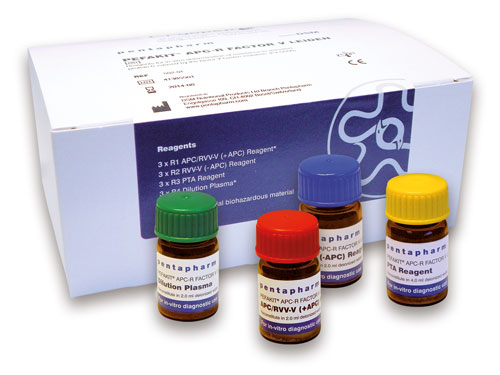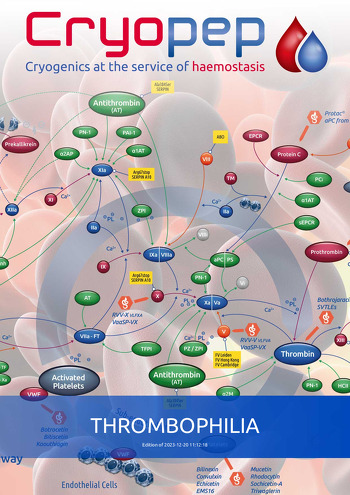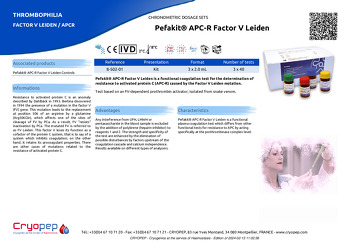HEMOSTASIS COAGULATION ROUTINE THROMBOPHILIA FACTOR V LEIDEN / APCR
Pefakit® APC-R Factor V Leiden









Pefakit® APC-R Factor V Leiden is a functional coagulation test for the determination of resistance to activated protein C (APC-R) caused by the Factor V Leiden mutation.
Test based on an FV-dependent prothrombin activator, isolated from snake venom.

| Reference | 8-502-01 |
|---|---|
| Presentation | Kit |
| Format | 3 x 2.0 mL |
| Number of assays | 3 x 40 |
| Quote |
Price list, safety data sheets and notices are accessible to our registered customers.
| Reference | Presentation | Format | Number of assays | Quote | Product sheet |
|---|---|---|---|---|---|
| 8-502-01 | Kit | 3 x 2.0 mL | 3 x 40 |














